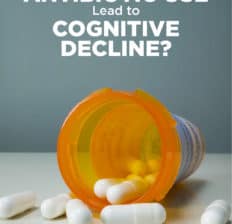This Dr. Axe content is medically reviewed or fact checked to ensure factually accurate information.
With strict editorial sourcing guidelines, we only link to academic research institutions, reputable media sites and, when research is available, medically peer-reviewed studies. Note that the numbers in parentheses (1, 2, etc.) are clickable links to these studies.
The information in our articles is NOT intended to replace a one-on-one relationship with a qualified health care professional and is not intended as medical advice.
This article is based on scientific evidence, written by experts and fact checked by our trained editorial staff. Note that the numbers in parentheses (1, 2, etc.) are clickable links to medically peer-reviewed studies.
Our team includes licensed nutritionists and dietitians, certified health education specialists, as well as certified strength and conditioning specialists, personal trainers and corrective exercise specialists. Our team aims to be not only thorough with its research, but also objective and unbiased.
The information in our articles is NOT intended to replace a one-on-one relationship with a qualified health care professional and is not intended as medical advice.
Study Finds Association Between Midlife Antibiotic Use and Cognitive Decline in Women
April 13, 2022

We know by now that the gut microbiome plays a major role in cognition and antibiotic use has detrimental impacts on gut health, but there’s been limited evidence to prove this seemingly obvious association — until now.
A new study published in PLOS One found that for women midlife antibiotic use is linked to declined cognitive function. The study results suggest that antibiotic use should be used with caution, especially among older adults, as it can accelerate brain aging when used in excess.
Study: Midlife Antibiotic Use Linked to Cognitive Decline
A March 2022 prospective population-based cohort study involving 14,542 female nurses sought to examine if the impacts of antibiotic use on the gut microbiome are linked to cognitive decline in adults.
Study participants completed a self-administered computerized neuropsychological test battery between 2014 and 2018. Regression models were used to assess if chronic antibiotic use in midlife was associated with cognitive impairment later in life.
Data showed that women who reported at least two months of antibiotic exposure in midlife, with a mean age of 54, had lower cognitive scores seven years later. Antibiotic users were compared to non-antibiotic users when measuring psychomotor speed, attention, learning and working memory.
Even when the data results were adjusted for age and additional risk factors, including existing health conditions, the differences did not change significantly.
Researchers concluded that the relation of antibiotic use to cognition was roughly equivalent to changes found in three to four years of aging. The study data shows that “long-term antibiotic use in midlife is associated with small decreases in cognition assessed several years later.”
What It Means (Antibiotic Overdose Risks)
This recent study highlights known side effects of antibiotics, including their detrimental effects on gut and brain health. Antibiotics, which are used to treat bacterial infections, can be overused and lead to antibiotic resistance and several health implications.
Remember that every time you take antibiotics, they kill off the “good” and “bad” bacteria in the body. Keeping a healthy balance of bacteria is important for so many aspects of human health, including immune system and cognitive function.
In addition to antibiotic use and cognitive decline in women, other risks associated with frequent antibiotic use include:
- bacterial infections that are antibiotic-resistant
- the development of allergies and asthma, especially among children
- digestive problems, like diarrhea and stomach pain
- “black tongue” symptoms, like nausea, vomiting, swollen tongue and headache
- fatigue and exhaustion
- brain fog
- mood changes
- hallucinations or psychotic episodes
How to Support Cognition as We Age
Whether you’ve taken antibiotics in recent years or not, it’s always important to support cognitive health, especially as we age. So many factors can impact brain function, including medications, environmental pollutants and food additives.
How do you support cognition? Here are a few tips to follow:
- Eat brain foods: Eating foods that are nutrient-dense, contain healthy fats and are rich in antioxidants supports cognitive health. These include avocados, berries, broccoli and other cruciferous vegetables, coconut oil, extra virgin olive oil, leafy greens, wild-caught salmon, and dark chocolate.
- Avoid inflammatory foods: Reduce your sugar and refined carbohydrate intake. It’s also beneficial to avoid overconsumption of processed and packaged foods that typically contain artificial ingredients and added sugars.
- Exercise daily: Daily exercise helps reduce stress, balance hormones, improve memory and clear mental clutter, especially among older adults.
- Get outdoors: Not only is being outdoors an excellent mood booster, but the vitamin D that’s produced from sun exposure helps with concentration, learning and memory.
- Get enough sleep: Getting enough sleep (seven to nine hours per night) is one of the most important ways to improve cognitive function.
- Try brain-boosting supplements: If you’re looking for additional support, adding in brain-boosting supplements can be helpful for healthy cognitive function. Omega-3 fish oil, ginseng, gingko biloba, ashwagandha, l-theanine and rhodiola are some common brain supplements.
Conclusion
- A March 2022 prospective population-based cohort study involving over 14,000 female nurses found that midlife antibiotic use is linked to cognitive decline in adults.
- Researchers concluded that the relation of antibiotic use to cognition was roughly equivalent to changes found in three to four years of aging.
- In addition to hindering cognition, long-term or excessive antibiotic use can cause antibiotic resistance, mood changes, digestive problems, fatigue and weakened immune system.
- To boost cognition with age, eat a nutrient-rich diet with antioxidant foods, exercise regularly, get enough sleep and supplement with brain-boosting herbs for extra support.












